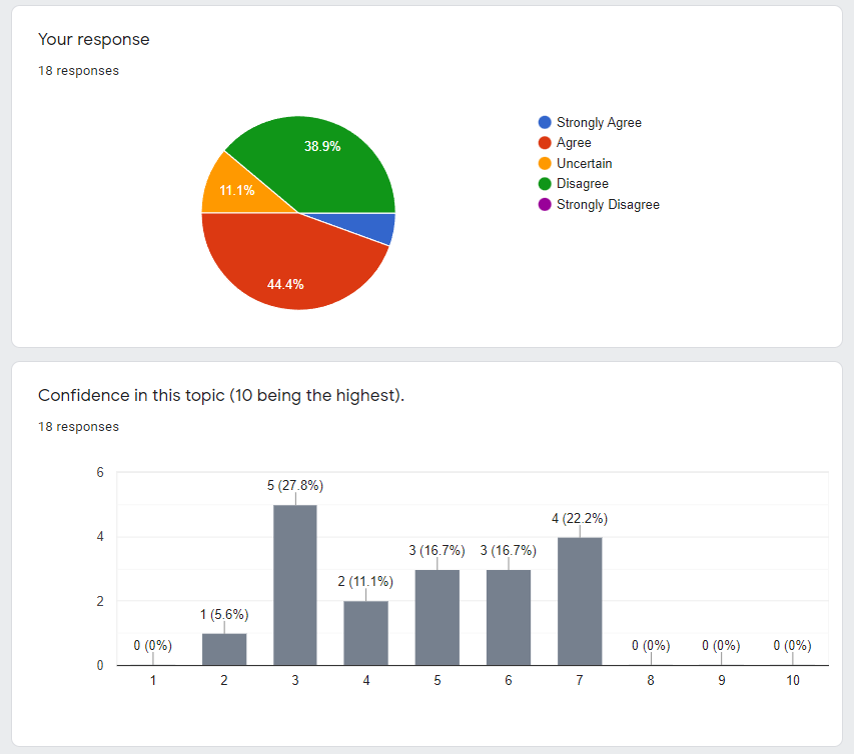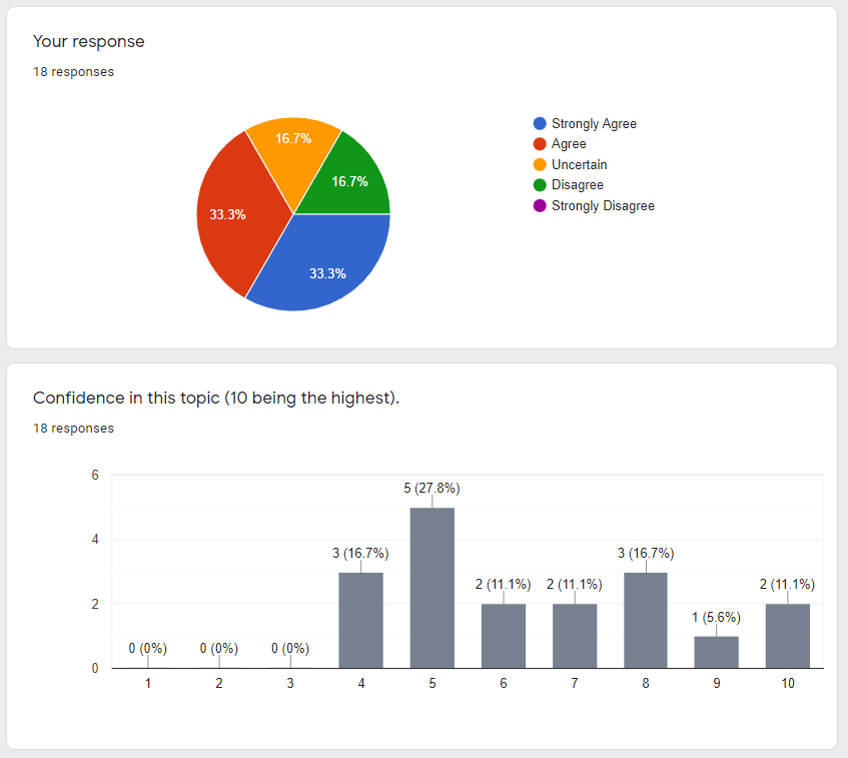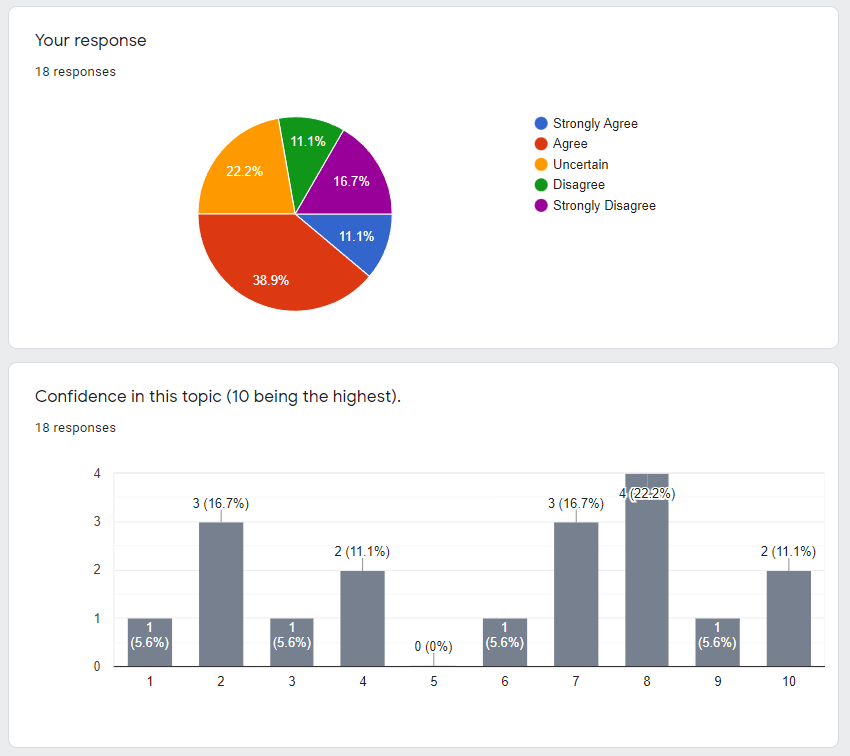PhD Consensus Survey
Exploring PhD Students' Views on Vital Policy Issues
Omicron
Summary
Unlike the economist panel who mostly agreed or were ambivalent about the health threat of Omicron, a significant portion of the PhD respondents did not think that Omicron will deliver a significant hit to economic activity from now through the first half of 2022. Many responses forecasted that lockdowns were unlikely and people will carry on with their lives, keeping the economy on its current trajectory.
The PhD respondents tended to agree more strongly on the role of vaccine distribution on global social welfare (33% strongly agree for PhD students vs. 14% strongly agree for the economist panel). The response for the last question, which pertains to travel bans, was similar for both panels.
Question A
“Even without renewed Covid-19 restrictions, uncertainty about the health threat from the Omicron variant is likely to deliver a significant hit to economic activity from now through the first half of 2022.”

Select Explanations
- In US, unlikely to experience lockdowns because people are tired. Some uncertainty now but it does seem less deadly than other variants
- Despite a higher transmissibility of the new variant, individuals and business are capable of adapting to the new situation much faster due to past experience – even with tougher restrictions we won’t experience a shock associated with shifting work patterns (remote work).
- GDP growth is back to trend after a major swing in 2020. Omicron doesn’t change the economic trajectory of the COVID disruption. Distributional impacts more concerning.
- I think everyone is tired and nobody cares anymore, so people will continue pretty much living their lives.
- More contagious. Lack of data on severity rn. Therefore uncertain
- Quarantines and sick days negatively affect firms’ ability to produce goods. Consumer behavior also gets more cautious, decreasing aggregate demand. However, prices may adjust so that the economic blow will be noticed only later as inflation (once reported) and as a decrease in real GDP, instead of an immediate drop in nominal output.
- Economic outcomes will be heterogeneous, depending on level of vaccination and policy response towards rising infections. In the US, vaccine mandates and a lax policy response will probably mitigate hits to economy activity.
Question B
“If world vaccine supply continues to be limited, global social welfare would rise by more if those vaccines were made widely available across Africa (with support for effective delivery) rather than accelerating booster vaccinations in rich countries.”

Select Explanations
- It seems that variants always come from under vaccinated countries.
- Not sure what is meant by “global social welfare”, but I think it should place a higher premium on people not dying (in poor countries) than on economic activity (in rich countries).
- This seems true even without considering the externality benefit from reducing risk of new variants emerging.
- on moral grounds alone. Also: HIV seems to add to mutations since virus longer in body
- I disagree with the premise of the question on limited vaccine supply. Vaccine supply is limited because of insufficient incentives (eg. low price of a dose) to increase vaccine production. Boosters, and additional doses, for the developed countries will increase those production incentives, if doses are priced according to their social value. Many Western governments have declined to pay the actual value of getting the vaccines promptly. This has slowed down increase in the worldwide production capacity.
- If we are talking global welfare, yes, because (at least until omicron) there are diminishing returns to getting additional shots of the vaccine.
Question C
Imposing travel bans on countries where new Covid-19 variants are discovered will make it less likely that countries will reveal new variants to the rest of the world.

Select Explanations
- Per evidence that I read from epidemiologists, travel bans are not effective in preventing cross-country transmission. Also, such transmission has nothing to do with likelihood of new mutations arising.
- Restrictions ineffective and discourage disclosure of new variants.
- Recent experience with S Africa suggests the opposite may be true, if countries fear punishment for revealing new variants to the world. Also, anything short of a complete ban on incoming air travel (like in NZ) will fail to keep out the virus (and, in countries with land borders, even that will fail).
- Countries should be given a “prize” for discovering a new variant by genomic sequencing.
- Certainly it won’t increase the incentives for reporting, but I doubt the effect would be big.